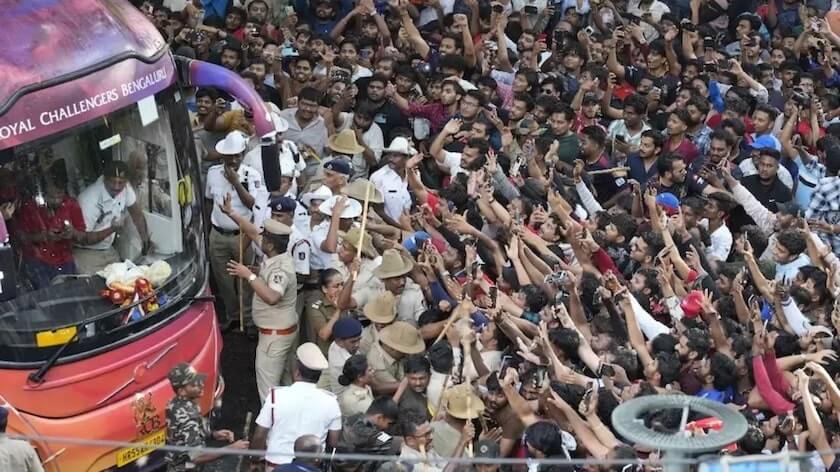In the aftermath of the tragic stampede outside Bengaluru’s M Chinnaswamy Stadium on 4 June 2025, which claimed 11 lives and injured several others, the Karnataka government has moved swiftly to introduce a comprehensive law aimed at preventing such incidents in the future. The proposed legislation, titled the Karnataka Crowd Control (Managing Crowd at Events and Venues of Mass Gathering) Bill, 2025, is currently under discussion in the state cabinet and is expected to be tabled for approval soon.
The new bill comes at a time when public concern over safety at large gatherings is at its peak. The government has made it clear that the law is meant to regulate and manage crowds at sponsored events and venues where mass gatherings occur, such as political rallies, conferences, and commercial events like sports matches and circuses. Notably, traditional and religious gatherings—including jatras, rathotsavas, pallakki utsavas, teppada teru, urus, or any religious event—are specifically exempted from the bill’s purview.
Accountability of Organisers
A central feature of the proposed law is the accountability it places on event organisers and planners. Organisers must now obtain prior permission from the police before conducting any event expected to draw a large crowd. They are required to provide details such as the expected number of participants. The police have the authority to change the date, time, or venue of the event, or even cancel or postpone it in case of emergencies.
Failure to comply with these regulations can attract stringent penalties. Organisers who violate the law or fail to control the crowd may face imprisonment for up to three years and fines as high as Rs 5 lakh. For individuals who disobey police orders or breach the provisions of the Act, the punishment could be up to three years in jail or a fine of up to Rs 5,000, or both. The offences under this bill are classified as non-cognisable and non-bailable, and will be tried by a magistrate of the first class.
Compensation for Victims
The bill also introduces a compensation mechanism for victims. If any death or bodily injury occurs due to mismanagement at an event, the organiser is responsible for compensating the affected families. Should the organiser fail to pay, the government is empowered to recover the amount as arrears of land revenue, including the right to auction the organiser’s property to ensure compensation is paid.
Another significant aspect is the authority vested in district magistrates and competent authorities. They are empowered to prohibit or cancel any act of crowd gathering if there is an apprehension of breach of peace or potential for discord among different groups, castes, or communities. The bill also allows for the regulation or prohibition of loudspeakers, music, or other instruments that could induce noise or unrest at public gatherings.
The Karnataka Crowd Control Bill is part of a broader legislative push that also includes proposed laws against misinformation, hate speech, and hate crimes. The urgency for such measures has been amplified by the recent stampede, which exposed lapses in crowd management and led to the suspension of police officials and legal action against event organisers.


